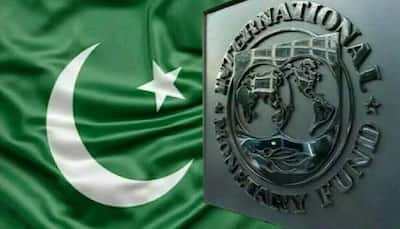New Delhi: As Pakistan’s economic frailty teeters on the edge, the International Monetary Fund (IMF) has signalled a hardening of stance. It has slapped Islamabad with 11 fresh policy requirements to unlock its next bailout tranche. This brings the total number of conditions to a staggering 50. The latest decision reflects the global lender’s growing unease not just over Pakistan’s economic mismanagement but also in the wake tensions with India.
Beyond fiscal and structural reforms, Pakistan’s geopolitical behaviour is now on the radar. The warning is clear: if tensions with India persist or worsen, Pakistan’s already-weak fiscal programme could unravel altogether.
The message is as political as it is financial.
India’s precision airstrikes under ‘Operation Sindoor’ on May 7, in response to the April 22 Pahalgam terror attack, rattled not only Islamabad but also international observers. Pakistan’s attempted retaliation via drones and missiles only worsened the outlook. And while a ceasefire was announced on May 10, the IMF is unconvinced the calm will last.
The IMF’s decision, as per reports, is directly linked Pakistan’s conflict posture that will risk in budget execution, foreign reserves and reform timelines. Notably, the IMF has flagged Pakistan’s ballooning defence expenditure, which is projected to exceed Rs 2.5 trillion for 2025-26, as a key vulnerability. That is an 18% hike driven by military tensions, even as the country struggles to provide electricity and curb inflation.
Behind the scenes, the reports suggest, IMF staff were alarmed by the Pakistan’s government’s plans to shift funds away from development to defence after the flare-up with India. They view it as Pakistan’s economic indiscipline. They say it is about choices Pakistan is making in the face of a crisis.
Following are the new IMF-imposed reforms – Parliament must pass the upcoming Rs 17.6 trillion federal budget – with strict adherence to IMF benchmarks; Its provinces must enforce agricultural income taxes long evaded by feudal power brokers; and a long-awaited governance roadmap must finally be published.
Long a black hole of subsidies and inefficiencies, the power sector also faces tighter scrutiny. Tariffs are set to be rebased annually, gas prices adjusted bi-annually and legal frameworks tightened around captive power and surcharges. The Rs 3.21 per unit cap on electricity debt servicing will be lifted – a move likely to raise bills for already-struggling households.
But perhaps most symbolic of the IMF’s micromanagement is its directive on used cars: Pakistan must ease import restrictions, extending allowances from three to five years by July 2025. It’s a small move with big implications for middle-class consumers and the import-heavy auto sector.
For Prime Minister Shehbaz Sharif, the squeeze is real. With falling reserves, investor skepticism and now increasing external conditions tied to regional behaviour, his government walks a tightrope. Any misstep – military or economic – could cost Pakistan dearly in the court of international lenders.
As global attention focuses on Pakistan’s next move, one truth is becoming harder to ignore – the country’s economy is no longer a matter of balance sheets and budgets, it is now a geopolitical bargaining chip. And the IMF is calling the shots.
Stay informed on all the , real-time updates, and follow all the important headlines in and on Zee News.








